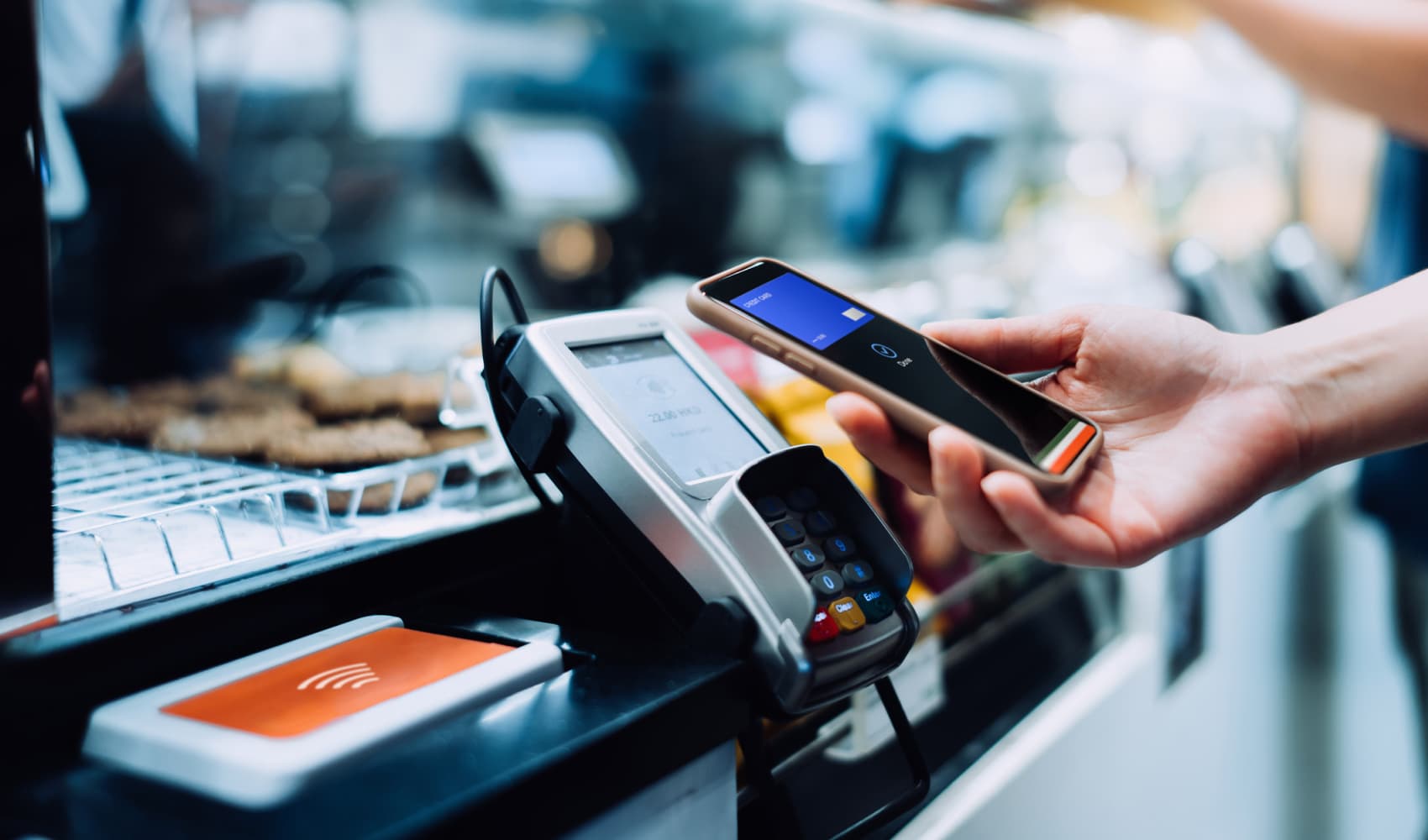Venmo's 20% Revenue Surge: Debit Card Drives Growth!
Venmo's Victory Lap: Revenue Surges 20% on Debit Card Boom!
Introduction: Is Venmo Finally Cashing In?
Venmo, the name synonymous with easy peer-to-peer payments, has long been the cool kid on the block. But for years, it felt like that cool kid was footing the bill for everyone's pizza. Now, things are changing. Recent reports show Venmo's revenue is finally catching up to its popularity, growing a remarkable 20% year-over-year in the first quarter. This growth, powered by a surge in debit card payment volume, suggests Venmo might be evolving from a popular platform to a profitable powerhouse.
The Numbers Don't Lie: A Closer Look at the Growth
PayPal's first-quarter earnings release painted a promising picture for Venmo. While they didn't disclose the exact dollar figure for Venmo's revenue, the 20% year-over-year growth is significant, especially considering it doubled the overall payment volume growth. This signals a shift towards better monetization of the platform. Think of it like this: Venmo isn't just processing more transactions; it's earning more from each one.
Why Debit Cards are Driving the Surge
So, what's fueling this growth? The answer lies in plastic: debit cards, to be precise.
The Rise of the Venmo Debit Card
PayPal reported adding almost two million new PayPal and Venmo debit card users during the quarter. This isn't just a minor uptick; it's a tidal wave. And with total debit card payment volume climbing over 60%, it's clear that users are actively using these cards for purchases.
Beyond Peer-to-Peer: Expanding Venmo's Reach
Venmo's initial appeal was rooted in simplifying payments between friends. Splitting rent, covering concert tickets, or chipping in for a group gift became effortless. But the platform's ambition extends beyond these casual exchanges. The debit card allows users to seamlessly integrate Venmo into their everyday spending, making it a viable alternative to traditional bank accounts and credit cards. This is the key to unlocking sustainable revenue growth.
Branded Checkout: Venmo Goes Shopping
Beyond debit cards, analysts point to Venmo's expanding presence in branded checkout as another crucial growth driver. This means you're increasingly seeing Venmo as a payment option when shopping online, further solidifying its role as a versatile payment platform.
The Power of Seamless Integration
Imagine browsing your favorite online store and effortlessly paying with your Venmo balance. No more fumbling for credit card numbers or creating new accounts. That's the power of branded checkout. It's convenient, secure, and leverages Venmo's existing user base.
A Competitive Edge: Targeting Millennials and Gen Z
Venmo's user base is heavily skewed towards millennials and Gen Z, demographics that are increasingly comfortable with digital payments and mobile-first experiences. By offering seamless branded checkout options, Venmo is capitalizing on this trend and capturing a larger share of the online shopping market.
Competition Heats Up: Zelle and Square Cash Enter the Ring
Venmo's success hasn't gone unnoticed. Competitors like Zelle and Square Cash are vying for a piece of the peer-to-peer payment pie. This intensifies the pressure on Venmo to innovate and maintain its competitive advantage.
Zelle: The Bank-Backed Contender
Zelle, backed by a consortium of major banks, offers a direct, bank-to-bank transfer system. Its main advantage? Familiarity and trust. Many users prefer Zelle for larger transactions due to its association with established financial institutions. Can Venmo overcome this trust factor?
Square Cash (Cash App): The Versatile Rival
Square Cash, now known as Cash App, goes beyond peer-to-peer payments, offering features like stock trading and Bitcoin investing. This broader feature set appeals to users seeking a more comprehensive financial platform. Venmo needs to keep up with this continuous innovation or risk falling behind.
PayPal's Long Game: Venmo as a Cornerstone
PayPal acquired Venmo in 2013 through the acquisition of Braintree. At the time, it was a strategic move to tap into the growing mobile payment market. But the initial focus was on building user base, not necessarily on immediate profitability. Now, the long game is starting to pay off.
From Acquisition to Monetization: A Strategic Shift
For years, analysts questioned PayPal's monetization strategy for Venmo. Was it just a loss leader? The recent revenue growth suggests a decisive shift. PayPal is actively exploring and implementing strategies to extract value from Venmo's massive user base.
The PayPal Ecosystem: A Synergistic Approach
Venmo is deeply integrated into the PayPal ecosystem, allowing users to seamlessly transfer funds between the two platforms. This creates a synergistic effect, driving engagement and fostering customer loyalty. It's like having two sides of the same coin, each complementing the other.
Challenges Ahead: Maintaining Momentum and Navigating Regulations
While the future looks bright for Venmo, challenges remain. Maintaining the current growth trajectory, navigating evolving regulations, and staying ahead of the competition will require constant vigilance and innovation.
The Regulatory Landscape: A Shifting Ground
The financial technology industry is subject to increasing regulatory scrutiny. Venmo must adapt to these changes and ensure compliance with all applicable laws and regulations. Failure to do so could have serious consequences.
The Security Imperative: Protecting User Data
As a financial platform, Venmo is a prime target for cybercriminals. Protecting user data and preventing fraud are paramount. Investing in robust security measures is crucial to maintaining user trust and confidence.
What's Next for Venmo? Predicting Future Growth
So, what can we expect from Venmo in the coming years? It's likely we'll see further expansion into branded checkout, integration with more merchants, and the introduction of new financial services. The key will be to balance innovation with user experience and security.
Beyond Payments: Exploring New Revenue Streams
Venmo could explore offering additional financial services, such as high-yield savings accounts, personal loans, or even cryptocurrency trading. These offerings would not only generate new revenue streams but also deepen user engagement.
Global Expansion: Taking Venmo to the World
Currently, Venmo is primarily available in the United States. Expanding internationally would unlock a massive new market. However, this would require adapting the platform to local regulations and payment preferences. The world is the oyster.
Conclusion: Venmo's Transformation is Underway
Venmo's 20% revenue growth, driven by a surge in debit card usage and expansion into branded checkout, signals a significant turning point for the platform. While competition from Zelle and Square Cash remains fierce, Venmo's strategic integration into the PayPal ecosystem and its focus on millennials and Gen Z position it for continued success. The journey from a popular peer-to-peer payment app to a profitable and versatile financial platform is well underway. Venmo is no longer just the cool kid; it's becoming a serious player.
Frequently Asked Questions (FAQs)
Q: What is driving Venmo's recent revenue growth?
A: The primary drivers are the increased usage of Venmo debit cards and its expansion into branded checkout options for online purchases.
Q: How does Venmo make money?
A: Venmo generates revenue through transaction fees on business accounts, instant transfers, cash-a-check feature, interchange fees from debit card transactions, and through commissions earned when users use Venmo to make purchases with select retailers.
Q: How does Venmo compare to Zelle?
A: Venmo is generally preferred for smaller, social payments between friends, while Zelle, backed by banks, is often used for larger transactions and payments to individuals where trust is paramount. Zelle transfers directly between bank accounts whereas Venmo is an intermediate holding account.
Q: Is Venmo a safe and secure way to send money?
A: Venmo employs encryption technology to protect user data. However, it's important to be cautious and only send money to people you know and trust. Enable two-factor authentication for added security.
Q: Can I use Venmo internationally?
A: Currently, Venmo is primarily available in the United States. International transfers are not supported at this time.


